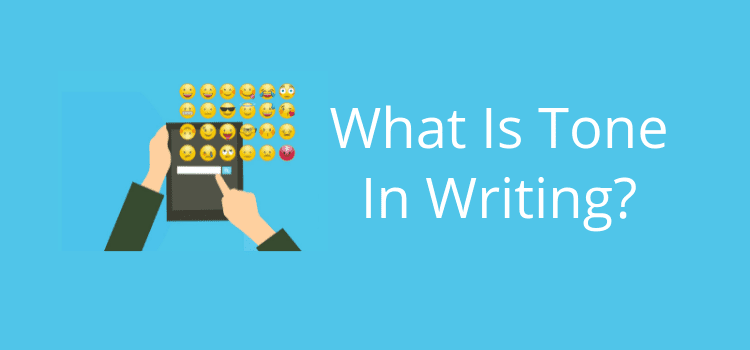
When you publish any content online, you want people to read your writing. But for it to happen, people need to find your content. This is where semantic keywords can help.
Sure, you can use social media to spread the word, but the benefits are very short-lived.
The best way to get your content noticed and read for a longer period of time is to have it indexed by search engines so that it appears in search results.
You probably immediately think I am only referring to blog posts and articles. But no, search engines can and do index book descriptions. So, if you are an author, you should read on.
Smarter search engines
Search engines understand more than just plain keywords, and they are getting a lot smarter.
Gone are the days when you could keyword stuff your title, text, and meta description with one or two words. This practice does not work any longer.
A search engine now analyses the whole text. It looks for elements that give depth to the content that will be informative concerning a search query.
To stand a chance of getting a high Google page ranking for your great article now, your text needs to contain words that are associated with your topic.
To put it another way, you need to use words that are a related search term or semantic in search engine optimization (SEO) strategy.
Using semantically related keywords is not difficult.
Whenever you create new content, you probably already know you need to think about keywords and long-tail keywords.
For example, if you are writing about fish, your core keywords might be fish and fishing.
Your long-tail or phrase keywords might then be, why I like fishing, where can you catch fish, or what every fisherman should know.
But what about words such as boat, river, rod, line, bait, tackle, and hooks? These words are thematic, or semantic, to fishing.
How to start your semantic keyword research
The best way to find relevant and high-quality semantic keywords is to use an SEO tool, as I have done to research the following examples.
You could also use an online latent semantic indexing (LSI) tool or any other free SEO keyword tool.
The first thing to do is to check for a relevant main keyword. The example below traces how I prepared to write this article.
My keyword is obviously semantic keywords.
Here is the result of my first broad search.

My main keyword is not bad, as it doesn’t look like it will face a lot of competition.
I don’t want to write about a specific tool, so I chose the second and third keywords.
The next thing to do is to see if there is any interest in this topic. You can do this by checking the topic with Google Trends.

There are peaks and troughs, but there is enough interest to continue writing about the subject.
Anyway, it’s important information for writers, so I don’t need a huge trend to motivate me.
From this basic information, I now want to gather a list of semantic keywords that I will need to use to write the article.
I used a content creation tool to make things faster, but you can use Google Search to do the same thing.
Making a list
All I need to do is enter a couple or a few basic keyword phrases, and it gives me all the related keywords I need to include.
These keywords are drawn from the top articles on Google for the topic.
My two base phrases are, what are semantic keywords and latent semantic indexing.
The result of using the content tool gives me everything I need.
I have starred out letters because I don’t want to repeat all these words, keywords, and stuff in this article.
Enrich your text with the following semantically related words:
main k**words, related se**ches, grea**, ls* ke**ords, long t*il k**words, se**ch en*ine, tar**ted keyword, rela*ed ke*word, high q*ality, cre*te co**ent, se**ntic rel*ed key*rds, se* stra**gy, sem**tic k*word res*arch, keyw**d den*ties, bl*g po*ts, co*e key**rds, sem**tic in**xing, la**nt se**ntic in**xing ls*, sem**tic s*rch, soc*al**edia
If you check this article carefully, you will see the occurrences of the recommended semantic keywords I have used to help increase search visibility.
How can I use LSI keywords for a book?
You can use semantic words in your book description and your blog posts.
Your book description is probably on many sites, including Amazon, Goodreads, Apple, and your blog and website.
But is it being indexed by Google? If so, does it rank reasonably well? If not, semantic keywords can help.
I will use one of my books, One Last Love, which is set in a hospice, as an example.
I chose a few basic words that describe the themes in the book.
Then, I used them as my main keywords, as I did in the first example.
Add at least one of your targeted keywords: love in later life, hospice, terminal illness, rose garden
Enrich your text with the following semantically related words: hospice program, emotional and spiritual, falling in love, hospice staff, hospice and palliative care, nursing home, pain management, palliative care, national hospice and palliative, social workers, life expectancy, hospice services, home care, life care, pain and symptom, hospice provide, hospice nurses, older people, hospice patients
I certainly wouldn’t use all of the suggested words.
However, there are enough new words to include in my book description to make it more informative and search engine-friendly.
No one will ever search for my book by its title or my name. But now, people who search using one of the new words may find it from these related searches.
It is easy to apply this simple semantic link SEO strategy.
You can improve the chances of your book being discovered by readers when they use one of your semantic words when they search.
Tips for using and improving your semantic search
You don’t need to use SEO tools, as I have done in the above examples.
But it does make it a lot faster and more complete.
For authors, you can use a free online tool to find semantic keywords.
Or simply sit down and make a list of twenty or so words or short phrases that relate to the topics, themes, locations, and time periods of your book.
You can then use these to improve and enhance your book description.
The only word of warning is that you should be careful when it comes to keyword densities.
Don’t try to stuff your article full of related keywords.
Write as you usually do, but when there is an opportunity, include a keyword in your text as naturally as possible.
If you use internal links, using one or two of the main keywords in your anchor text is also a good idea.
Summary
Semantic indexing is not a cure-all for poor writing.
It helps you to know that Google and other search engines include this factor in their algorithms.
So, nothing is more powerful than fantastic content.
Well-written, long-form, and highly informative articles that answer readers’ questions are still the best winning formula.
Related reading: Don’t Use SEO Clickbait To Try To Trick Visitors To Your Blog




Thanks a lot for sharing that informative article. It’s very helpful for all beginners who want to learn healthy Search Engine Optimization strategies which helpful to rank their website on google and any other search engine in good manners.
Hi Hilary. I tend to go for medium volume long tail keywords with low KW difficulty. But it really is a bit of trial and error. With Semrush you can spy on your competitors’ keywords to see what works in getting real traffic. That’s a cool tool.
Hi Derek, great article, thanks.
I looked at Semrush, but I still don’t understand what I’m looking at.
Should we be aiming for the high volume key words or low volume?
Maybe I missed it – you might already have a post on how to make sense of the numbers?
Many thanks,
Hilary